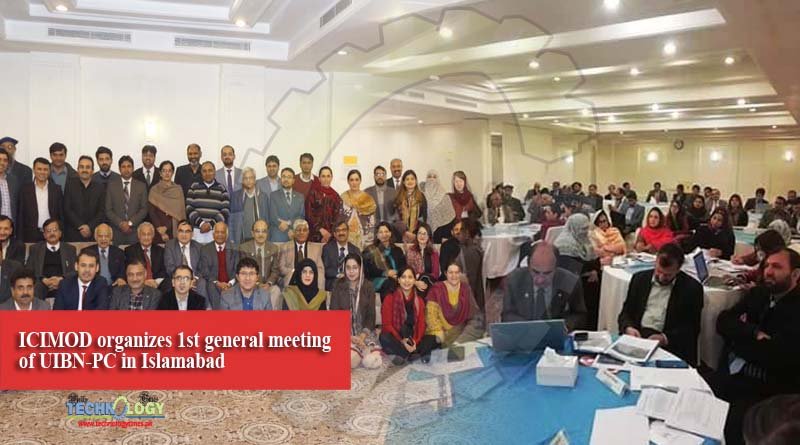The International Centre for Integrated Mountain Development (ICIMOD) organizes general meeting of Upper Indus Basin Network Pakistan Chapter (UIBN-PC) on 30th – 31st January 2020 at Hill view Hotel Islamabad.

General meeting of UIBN-PC was attended by number of representatives from government sector, policy maker,national and international NGOs, organizations and universities.
Coordinator UIBN-PC Mr. Muhammad Riaz said in welcome remarks that the Indus River basin shared by Afghanistan, China, India and Pakistan. Pakistan is ranked among the world’s most significant basins in terms of human dependency on its water resources and agricultural livelihoods.
Later he introduced ICIMOD which is a regional intergovernmental learning and knowledge sharing centre and based in Kathmandu, Nepal serving eight regional member countries of the Hindu Kush Himalaya i-e Afghanistan, Bangladesh, Bhutan, China, India, Myanmar, Nepal and Pakistan.
Director General, Ministry of Foreign Affairs Mr. Shozab Abbas said in opening remarks that Allah has blessed the land of Pakistan with plenty of water. Problem is related to management of water resources in accurate way instead of Water shortage. We need to build capacity of water for future consumption.
Dr Abdul Wahid Jasra and Ajaz Ali from ICIMOD gave Presentation on Journey of UIBN. He informed that ICIMOD established an Upper Indus Basin-Monitoring Working Group (UIB-MWG) during 2012 by keeping in view its strategic importance for “Building Resilience to Climate Change Impacts on Water Resources of the UIB”.
This group was further elaborated to a network named Upper Indus Basin Network (UIBN) which comprised of six technical working groups (TWGs) and members from different national and international organizations working in UIB.
Lead coordinators of all six TWGs gave Presentations on their technical progress during year and future working plan in a meeting. Question and answer session held for further discussion.
ICIMOD hold consultation meeting on Gender Resource Group in UIBN prior this meeting to discuss its objectives to serve as a vehicle for sharing knowledge, exchanging data and networking on gender equality and influencing national and trans-boundary policies and processes on gender for water, food and energy nexus towards gender transformative change.
Representatives from more than 23 organizations from all over the Pakistan were attended the meeting on Gender Resource Group. All agreed that Policies on water, land, food, and energy neglect the role of women as essential stakeholders for decision-making and problem-solving.
Women are more vulnerable to insecurities in the sector of water, energy, food and land. They have little or no access to resources, information and mobility. They are not considering as part of task forces or committees on these four sectors at the government level.
